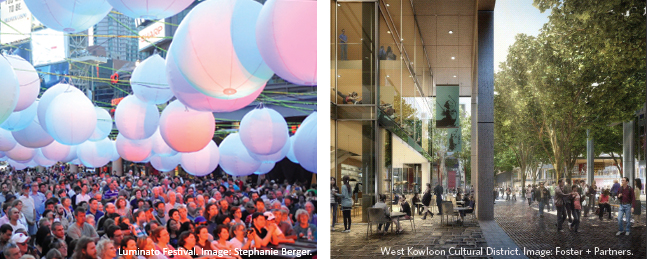There is no recipe for cultural planning across countries and regions. Different mind-sets, governance models and economic circumstances lead to very different perspectives on how to best plan for culture:
- In North America there is a growing conviction that culture is at the heart of city planning and that the community must be involved extensively in its design. As a result, cultural planning increasingly is addressed from a holistic perspective. Also, the enthusiastic adoption of creative economy theories has brought culture and economy closer than ever, with the realization that the future lies in public-private partnership.
- Such is not the case in Europe, which regards discussion of culture in economic and private terms with suspicion due to the social welfare state tradition. Culture tends to remain at the heritage and educational levels, with its advancement primarily the duty of the public sector, hence there is less involvement of the community in its long-term design.
- Asia is a whole new world. In the midst of an urban explosion and an improving economic climate, cultural planning has been tied to new infrastructure development projects. It is yet to be seen how these projects will cohabitate with other initiatives and how their citizens will gain ownership of them overtime.
The North American model seems to be influencing the other regions. In Europe, the international financial crisis has diminished the capacity of public institutions to support cultural development on their own and has left them with no choice other than shifting their approach towards the economic value of culture and private involvement. In Asia, the North American model is seen as a best practice.
However, the differences are profound and likely to persist, meaning that the importance of maintaining sensitivity to local particularities rather than imposing a methodology will continue to be crucial when collaborating with cultural operators from another region. This requires patience, an open mind, and a deep understanding of your clientís or collaboratorís expectations.


Cultural Planning projects
Back to main page...
|